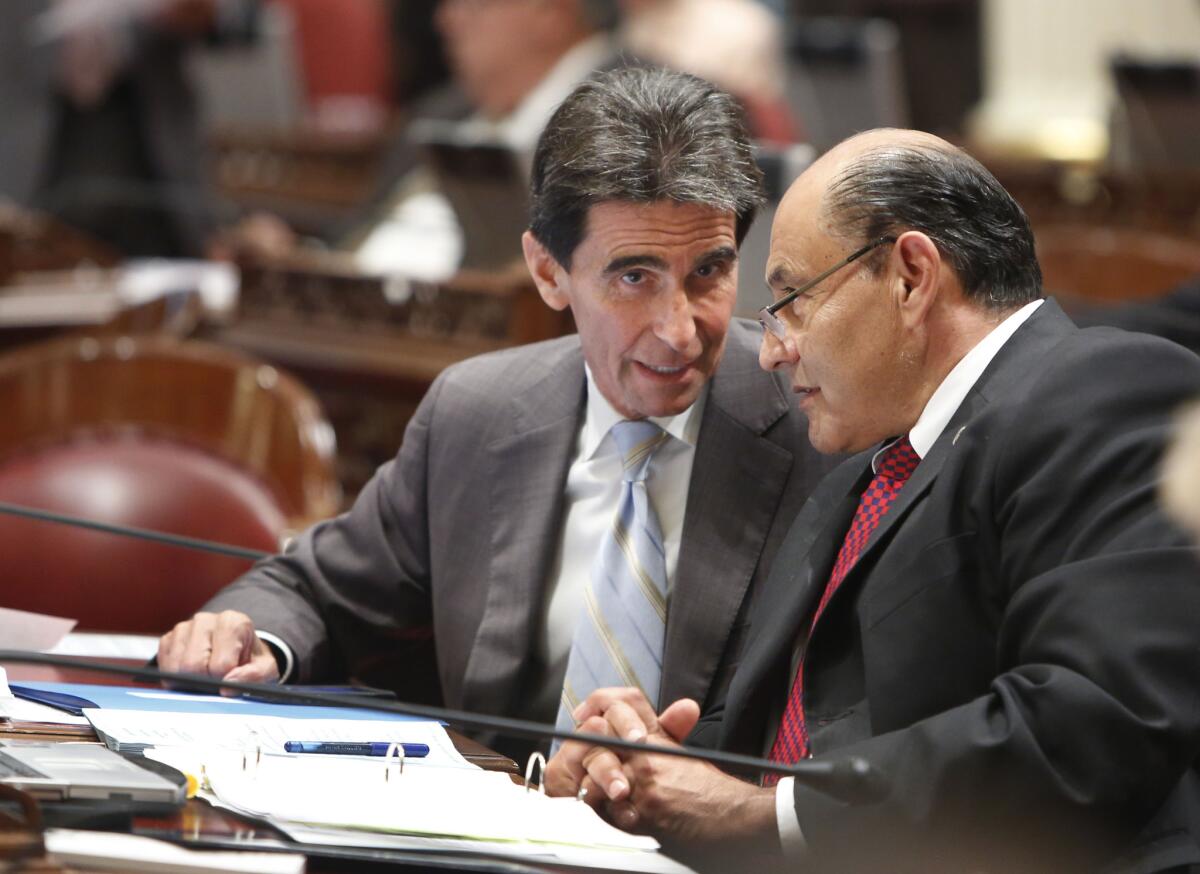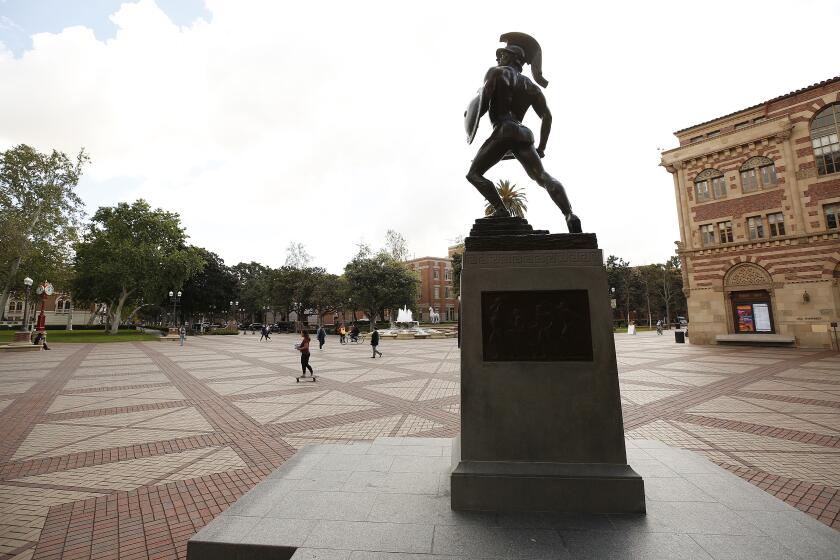California’s ‘wobbler’ bill on sentencing drug users makes sense

In June, The Times editorialized in favor of a bill to make simple possession of most illegal drugs in California a “wobbler” -- punishable as either a misdemeanor or a felony. Currently, prosecutors can charge possession of cocaine, heroin and many other drugs only as felonies.
SB 649 had already passed the state Senate; on Wednesday, it passed the Assembly as well. It now returns to the Senate for concurrence, to make technical corrections, and is expected to pass there Friday or next week and move to Gov. Jerry Brown’s desk.
Supporters of the bill, including those of us on the Los Angeles Times’ editorial board, argue that the misdemeanor option will move California away from a destructive policy that sends drug users (including addicts) for long terms to state prison, where only now are officials restarting rehabilitation programs after years in which overcrowding left no funding and no room for drug treatment.
Many former addicts assert that their addictions nearly destroyed their lives. But whatever is left intact by the drugs is often wrecked by the law. For example, felony convictions follow drug users after they are released from prison, and those criminal records must be disclosed on many job applications. The Times editorialized earlier this year on a measure to deal with that problem.
People convicted of drug crimes that went beyond simple possession can’t even get food stamps in California. The Times addressed that issue in another editorial on proposed legislation.
So convicted drug felons go to prison, they don’t get treatment, they come out still having a drug problem and are unable to get a job and in some cases can’t get food stamps. They are back in our communities, with no money and no future. That’s the best the justice system can do?
There is another aspect of the “wobbler” bill that deserves some attention: Because prosecutors would be able to choose whether to seek misdemeanor or felony charges against any given drug possession defendant, and because each county elects its own district attorney who in turn sets his or her own charging policies, there is a possibility that people will be charged differently depending on which county they live in. There is a danger as well that prosecutors will charge people differently based on a variety of circumstances -- race, for example, or age, or appearance.
The California District Attorneys Assn. publishes standards that prosecutors all over California are supposed to use in deciding how to charge a wobbler, but results still vary by jurisdiction and by geography. As we noted in our editorial, simple possession of methamphetamine is already a wobbler, and a 2010 study of prosecutions under that law show how widely prosecutions diverge from county to county.
That variance is, of course, based on judgment calls and discretion granted not just to prosecutors but to judges and others in the criminal justice system.
So just how much judgment do we really want public employees to be able to exercise, and to what degree do we want rigid standards that bind their hands and limit their discretion in the name of fairness and uniformity?
A bill like SB 649 naturally draws the most attention for any changes it might make in how people are punished for having a bit of illegal drug in their hip pocket or their glove compartment. In many ways, though, the question of judgment versus uniformity is thornier and has greater impact.
This quandary comes up all the time in government, especially in criminal justice. Consider, for example, the decision announced this year by U.S. Atty. Gen. Eric H. Holder Jr. on mandatory minimum drug sentences in federal courts. The Times weighed in on that as well, and how Holder’s decision adjusts, but does not reverse, the law that stripped judges and others of some of their discretion.
In the case of SB 649, The Times argued that there can be no “autopilot” in sentencing, and we called for quick, easy and public access to sentencing data to allow scrutiny of differences in how judgment is exercised, allowing Californians to make adjustments as necessary.
ALSO:
Gloria Allred, Bob Filner’s nemesis
‘My Dinner with Assad’ haunts John Kerry
Baseball and softball belong in the Olympics
More to Read
A cure for the common opinion
Get thought-provoking perspectives with our weekly newsletter.
You may occasionally receive promotional content from the Los Angeles Times.











